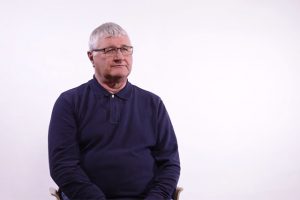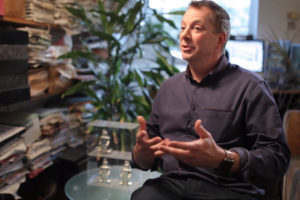Newspapers in Crisis
Professor Colin Sparks on decline in media, digitalization of information and top-ten Google searches
Are lectures the best way to share knowledge? Why do many students have trouble with word-based problems? Harvard University’s Balkanski Professor of Physics and Applied Physics Eric Mazur explains his methods for helping students learn.
A car and a truck collide head-on on the highway. Is the force exerted by the heavy truck on the light car larger than the force exerted by the light car on heavy truck? Are they equal? Is it the other way around? And these researchers showed that it doesn’t make any difference whether you ask the questions before the students have had their physics course, or after. These were not physics majors; they were engineering majors, premeds. I read that article and I thought ‘Not my students,’ you know, not Harvard students. But I’m a scientist. So one thing I’ve learned is you don’t just make statements. If you make a statement you better show data.
I changed my approach to teaching completely. I stopped lecturing. I stopped being the Hollywood performer in front of the students. Instead I gave them the book and my notes to read. I asked them to read the book before coming to class, not after class, and in class I teach by questioning. So I’ll talk a few minutes; I’ll ask a question. The student think about it and then I have them vote on the answer — we actually use technology to do that. So they commit to an answer and then I tell them ‘find somebody with a different answer around you and try to convince that person.’
If you ask yourself, pragmatically, which is the harder part? I think we all agree it’s a second part, the sense-making. So why not flip this around and do the easy part outside of the classroom — the transfer of information [by] books, video — and then in class we think about it? You can do this with art history, you can do it with biology, you can do it with quantum information, you can do it with special relativity, you can do it with finance. And in fact, believe it or not, there are people in all of these fields at universities — not my own — but many who were using it [in] finance to mathematics to French drama.

Professor Colin Sparks on decline in media, digitalization of information and top-ten Google searches

Neuroscientist Michael Thomas on the connection between neuroscience and education, neural circuits, and pract...
Historian of Science Simon Werret on Michel Foucault, the Grigory Potemkin’s estate and theatricality of Samue...